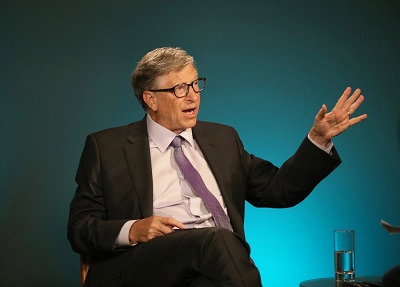New Delhi,(Asian independent) Microsoft founder and billionaire philanthropist Bill Gates has revealed that in 1997, when he read about children dying in various parts of the world due to diseases which were curable in the US, he realised what he wanted to do something beyond the company he founded.
During a conversation with comedian Trevor Noah on his podcast, titled ‘What Now? With Trevor Noah,’ Gates shared the 1997 incident.
“I had a long period from about age 18 to 40 where I was very monomaniacal. Microsoft was everything. I was lucky enough that as other people took over Microsoft, I got to go and read and learn about all the health challenges, why children die,” said the Microsoft founder.
He went on to start his charitable organisation called Bill and Melinda Gates Foundation.
“Our foundation has spent $53.8 billion since 2000, and we think that’s helped our partners make a difference. The number of children who die each year before their fifth birthday. It’s fallen by half since the year 2000. Millions more kids are surviving. That makes us optimistic,” Gates wrote on their website.
Last December, he said that if we make smart investments now, artificial intelligence (AI) can make the world a more equitable place, reducing or even eliminating the lag time between when the rich world gets an innovation and when the poor world does.
In a blog post titled ‘The road ahead reaches a turning point in 2024,’ the Microsoft Co-founder said that we can learn a lot from global health about how to make AI more equitable.
“The main lesson is that the product must be tailored to the people who will use it,” he wrote.
One of the biggest impacts so far is on creating new medicines. Drug discovery requires combing through massive amounts of data, and “AI tools can speed up that process significantly”.
“Some companies are already working on cancer drugs developed this way. But a key priority of the Gates Foundation in AI is ensuring these tools also address health issues that disproportionately affect the world’s poorest, like AIDS, TB, and malaria,” he stressed.








